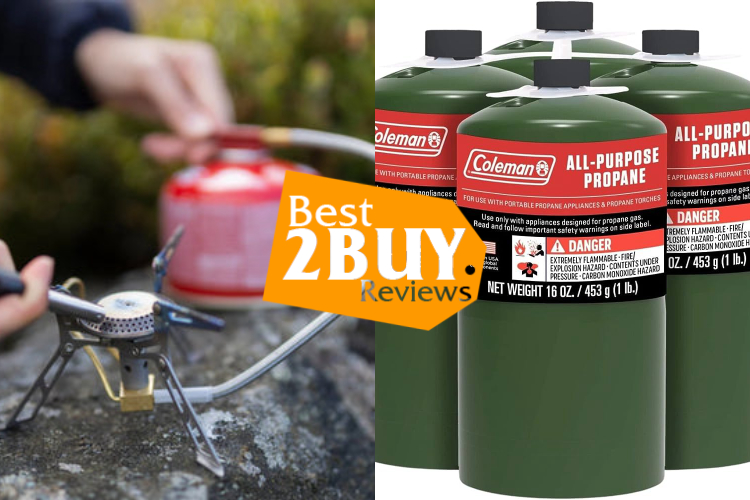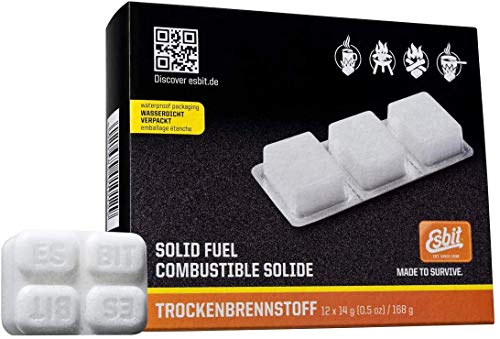How to Choose the Camping Replacement Fuel
Camping Replacement Fuel: A Guide to Choosing the Right Option

- 1. Camping Replacement Fuel: A Guide to Choosing the Right Option
- 1.1. Types of Camping Fuel, Pros&Cons
- 1.1.1. Propane
- 1.1.2. Butane
- 1.1.3. White Gas (Coleman Fuel)
- 1.1.4. Alcohol
- 1.1.5. Solid Fuel Tablets
- 1.1. Types of Camping Fuel, Pros&Cons
- 2. How To Choose The Right Camping Replacement Fuel
- 2.1. Consider Your Equipment
- 2.2. Evaluate Fuel Efficiency
- 2.3. Safety Considerations
- 2.4. Environmental Impact
- 3. Conclusion
Camping is a wonderful way to connect with nature, unwind, and create lasting memories. Whether you're an experienced camper or a novice, one essential aspect of any camping trip is fuel. Fuel is necessary for cooking meals, providing warmth, and powering various camping equipment. However, traditional fuel sources like wood and charcoal may not always be readily available or practical. This is where camping replacement fuels come into play.
Camping replacement fuels are alternative options that can be used in place of traditional fuels. They offer convenience, ease of use, and often have a smaller environmental impact. In this article, we will explore some popular camping replacement fuel options and discuss their benefits and considerations.
Types of Camping Fuel, Pros&Cons
Propane
Propane is one of the most popular camping replacement fuels due to its convenience and efficiency. It is a clean-burning fuel that produces a consistent flame, making it ideal for cooking. Propane can be stored in portable tanks, making it easy to transport and use. Here are some pros and cons of using propane:
Pros:
- Easy to find and widely available at camping stores and gas stations.
- Provides a consistent flame and heat output.
- Can be used with various camping stoves, grills, and lanterns.
- Propane tanks are refillable and can be reused multiple times.
- Propane burns cleanly, leaving no residue or ash.
Cons:
- Propane tanks can be heavy and take up space.
- In extremely cold temperatures, propane may not perform as well.
- Refilling propane tanks can be expensive, especially in remote areas.
- Propane tanks need to be handled and stored with care due to their flammable nature.
Butane
Butane is another popular camping fuel that is commonly used in portable stoves and lanterns. It is a highly efficient fuel that provides a clean and hot flame. Here are the pros and cons of using butane:
Pros:
- Butane is readily available in small canisters at camping stores.
- It is easy to ignite and provides a consistent flame.
- Butane burns cleanly and leaves no residue.
- Canisters are lightweight and compact, making them easy to carry.
- Butane performs well in cold temperatures.
Cons:
- Butane canisters are not as widely available as propane.
- The fuel canister may not be refillable, leading to more waste.
- Butane canisters can be more expensive than propane.
- The flame output may decrease as the fuel level in the canister drops.
White Gas (Coleman Fuel)
White gas, also known as Coleman fuel, is a liquid fuel commonly used in camping stoves and lanterns. It is a highly efficient and powerful fuel that provides a strong flame. Here are the pros and cons of using white gas:
Pros:
- White gas is readily available at camping stores and online.
- It is a versatile fuel that can be used in various camping stoves and lanterns.
- Provides a high heat output and burns efficiently.
- White gas performs well in cold temperatures.
- Fuel can be stored for long periods without degradation.
Cons:
- White gas is more expensive than propane or butane.
- It can be more challenging to ignite compared to other fuels.
- The fuel can be volatile and requires careful handling.
- White gas may produce more odor and soot compared to other fuels.
- The fuel can spill and create a mess if not handled properly.
Alcohol
Alcohol is a popular camping fuel due to its affordability and availability. It is commonly used in alcohol stoves and can be found in various forms, such as denatured alcohol or isopropyl alcohol. Here are the pros and cons of using alcohol as a camping fuel:
Pros:
- Alcohol is widely available in stores and pharmacies.
- It is relatively inexpensive compared to other fuels.
- Alcohol stoves are lightweight and compact.
- Alcohol burns cleanly and leaves no residue.
- The fuel is less volatile and safer to handle.
Cons:
- Alcohol stoves may have a slower cooking time compared to other fuel types.
- The heat output of alcohol stoves is generally lower.
- Alcohol may not perform well in extremely cold temperatures.
- Alcohol canisters may need to be refilled more frequently.
- The flame can be difficult to see in daylight, making it challenging to gauge heat output.
Solid Fuel Tablets
Solid fuel tablets are compact, lightweight, and easy to use. They are typically made from a mixture of chemicals that burn slowly and produce a consistent flame. Solid fuel tablets are often used with portable stoves or folding stoves, making them a convenient option for camping.
Pros
- One of the advantages of solid fuel tablets is their long shelf life. They can be stored for extended periods without degradation, making them a reliable backup fuel source.
- Additionally, solid fuel tablets are less affected by temperature and altitude, making them suitable for various camping conditions.
Cons
- Solid fuel tablets may not provide the same heat output as other fuel options.
- They are best suited for boiling water or heating small meals rather than cooking larger dishes.
- It's also important to use them in well-ventilated areas to avoid the buildup of fumes.
How To Choose The Right Camping Replacement Fuel
When it comes to camping, having a reliable source of fuel is essential. With so many options available, it can be overwhelming to choose the right camping replacement fuel. In this article, we will guide you through the process of selecting the most suitable fuel for your camping needs.
Consider Your Equipment
The first step in choosing the right camping replacement fuel is to consider the type of equipment you will be using. Different camping appliances require specific types of fuel. For example, liquid fuel stoves typically use white gas, while propane stoves use propane canisters. Lanterns may use liquid fuel, propane, or even butane cartridges. It's important to check the manufacturer's instructions or consult the equipment manual to determine the recommended fuel type.
Evaluate Fuel Efficiency
Fuel efficiency is another crucial factor to consider when choosing camping replacement fuel. The last thing you want is to run out of fuel in the middle of your camping trip. Some fuels burn more efficiently than others, providing longer burn times and reducing the need for frequent refills. Look for fuels that offer high energy content and longer burn times, as this will ensure you have enough fuel to last throughout your camping adventure.
Safety Considerations
Safety should always be a top priority when selecting camping replacement fuel. Some fuels are more hazardous than others, so it's crucial to understand the safety precautions associated with each fuel type. Propane, for instance, is generally considered safe to use, but it's important to handle and store propane canisters properly. Liquid fuels, on the other hand, can be more volatile and require careful handling. Always read the safety instructions provided by the manufacturer and follow them diligently to ensure a safe camping experience.
Environmental Impact
As responsible campers, it's important to consider the environmental impact of the fuel we choose. Some fuels, such as propane and butane, burn cleaner and produce fewer emissions compared to others. If minimizing your carbon footprint is a priority, opt for fuels that are more environmentally friendly. Additionally, consider the packaging and disposal of the fuel containers. Look for recyclable or reusable options to reduce waste and minimize your impact on the environment.
Conclusion
Before embarking on your camping trip, it's essential to research and understand the fuel options available to you. Consider factors such as burn time, heat output, ease of use, and safety. Always follow the manufacturer's instructions and take necessary precautions when handling and storing camping replacement fuels.
By choosing the right camping replacement fuel, you can ensure a successful and enjoyable camping experience while minimizing your impact on the environment. So, pack your gear, select your fuel, and get ready to embark on an unforgettable camping adventure!










